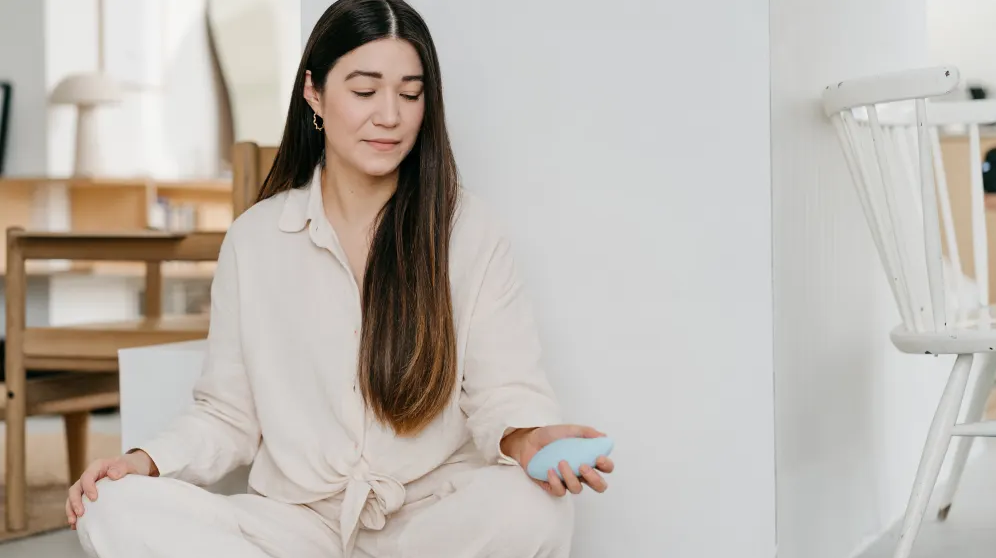
How do you stay well-balanced when you have autism? Tips from Céline Mollink, psychologist and autism coach
|
|
Time to read 3 min
Your cart is empty
Try moonbird for 30 days.
We are convinced you will love it.
Happy breathing!

You might also like

|
|
Time to read 3 min
In our busy and often hectic world, consciously seeking ways to relax is essential to stay well-balanced. The question is: how do you do that? Céline Mollink, psychologist and autism coach at AutismeKRACHT, shares her tips and insights.
Every day, I take moments to feel: How am I doing? Do I need to take a break or rest? How much energy do I have?
“I am a psychologist and autism coach, but also an expert by experience. My mission is to help people with autism make life more enjoyable. So that they can recognize themselves in others, understand who they are, and learn to deal with their challenges. I do this by providing coaching to people with autism, as well as through lectures and the promotion of autism expertise to professionals.
I hope to contribute to breaking the prejudice and stigma surrounding autism by sharing more knowledge and broadening my outlook. Especially when it comes to women with autism.
This is partly due to the fact that after ten years of misdiagnoses/treatments and getting stuck in life I finally discovered I have autism myself. I hope that by sharing knowledge, this disorder will be recognized earlier so that people with autism can get the right help. I also like to offer that help myself and I notice that the combination of being a psychologist and my own experience with autism works very well for people. They feel understood.”
“This remains a challenge for me. I have learned a lot over the recent years, but it remains difficult to feel. I notice it, especially in the reactions of my body: physical challenges mount, I easily get overstimulated and it takes longer to recover. I can also feel down and very tired.
This is something I take into account and need to keep in mind on a daily basis, I’m always looking for the right balance. Especially when I am exposed to a busy schedule, a lot of uncertainty, an environment with a lot of stimuli and/or (too) many social situations.”
“I try to walk in nature, although this didn't happen much during the recent dark months. I sometimes force myself into a meditation practice, but I find that I am still easily distracted. I haven't really found anything yet that really helps me relax, my head is always on.”
“I do have some fixed routines, they bring me peace. Almost every day I spend a few moments asking myself: How am I doing? Do I need to take a break or rest? How much energy do I have?
I sometimes don’t take enough rest, although I try to be very conscious. I usually rest in the evening after work, but then I have no other choice because I am often tired and overstimulated.”
“I've used moonbird a number of times now during shifts at work. I really liked it. I was less likely to get distracted, as my focus was on what I felt in my hand. And even when I did get distracted, I still followed the movement of moonbird with my breathing.
I now use it occasionally at work, at home in front of the TV, or when I'm sitting in the sun for a short break. I easily grab moonbird because I am in charge of when I stop. I like that the tool is compact, that I can easily take it with me and use it anywhere I want. Also I can decide for myself how long I use it, and I don't have to be stuck with a certain 12-minute exercise that I feel I 'should' finish. That sometimes prevents me from starting.
I don't always use moonbird with the app or voice guide. The movement of the inhalation and exhalation is all I need.”
“Time you enjoy wasting is not wasted time, in the light of not being able to relax and always wanting to be useful. Because relaxation can actually be very useful too!”
Find more information about Celine and her work on autismekracht.com.
P.S. Follow us on Instagram for the latest updates.
Your cart is empty
Try moonbird for 30 days.
We are convinced you will love it.
Happy breathing!

You might also like
